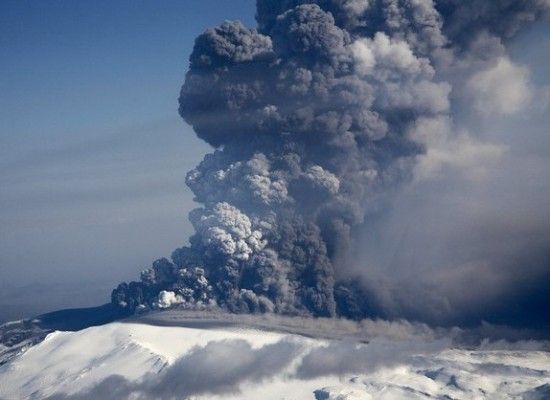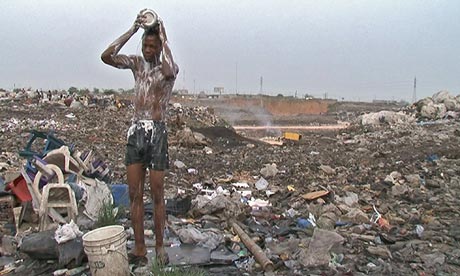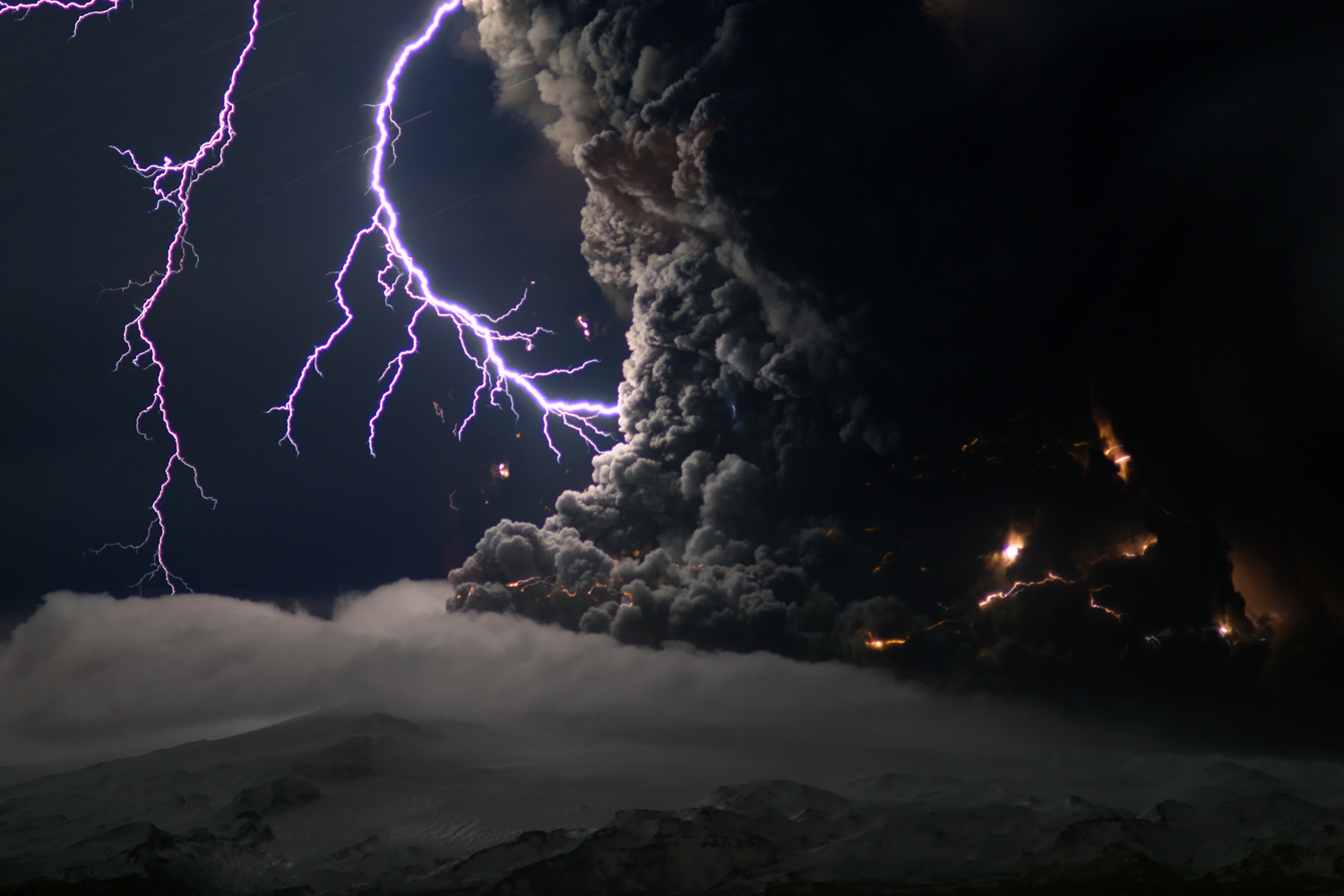In countries like Nigeria I'm always reminded how important information is and how hard it is to come bye. It affects everything from concert timings, flight schedules, to market prices and food delivery. Google and Time Out have spoiled us in the West. In Nigeria, I have to be in 20 different mailing lists and get a whole lot of spam, just to find out what's going on next weekend. In a city of 20mn! Crazy!!
There's clearly room for innovation here. Companies that can capitalize on the information arbitrage that exists more clearly here than nearly anywhere else stand to win big. Cool new products won't help anyone if they don't know they exist! Technology can help spread 'the message'; low technology (SMS) probably more so than high tech (internet), but whatever we use we need to have a solid understanding of how it spreads. Shamefully, this is an area most companies have completely underperformed in. Though they now know better how their products get to people, they have little clue how news of them is getting there. There's no data that could help, and often information highways bear little resemblance to what we know or can conceive. A story told by a colleague recently brought the message home.
Her sisters dogs went missing on the mainland and couldn't be found; a cause of great upset not only to my colleague's sister, who I heard whaling on the other side of the line, but of the security guard who left the gate open, who now feared for his position and more. The dogs couldn't be traced anywhere. At the same time the sheer size of the dogs had scared a motorbike-taxi (Okada) driver to drop his passenger at the sight of them on the other side of town. A resident on the street noticed the commotion on the way back from work and found the dogs. Eventually he noticed that they were well bread and decided to take them in, telling his staff to keep an eye out for the owners. The news was told to a newspaper boy who served the house and who happend to drop papers at my colleague's sister's house too. When he heard from her guard that he had upset the family by leaving the gate open and letting the dog escape, he immedateyl remembered the story and dog and owners were eventually reunited.
This unlikely tale is more than an anecdote on the power of the word of mouth but emphasises the crucial role that information intermediaries play in societies with poor formal information highways. I know little of these opportunities to bring news to low-income households, and from experience I know that marketing departments know even less. Clearly there's an opportunity here that we must develop on if we're to build inclusive products/markets. Any companies/people out there that do this kind of research/consultancy?
Monday, 13 December 2010
Tuesday, 20 July 2010
Trips from Lagos
In the process of trying to persuade my family to come out here later this year, I was writing an email about where they should go when I figured I could do this in Google Maps. I'd seen it done but never been geeky enough myself. Well now I have: Quite easy really!
Below is the map, with highlighted descriptions of Lagos, Osogbo, Kano and Katsina Durbars, Calabar Area, Benin (country), and Ghana.
Given the limited guidebooks for the area (to my knowledge there's only one of any use), this might be quite an interesting project to continue. If you want to help de-personalize, detail and increase the list of places to go, let me know and I'll invite you.
View Trips from Lagos in a larger map
Below is the map, with highlighted descriptions of Lagos, Osogbo, Kano and Katsina Durbars, Calabar Area, Benin (country), and Ghana.
Given the limited guidebooks for the area (to my knowledge there's only one of any use), this might be quite an interesting project to continue. If you want to help de-personalize, detail and increase the list of places to go, let me know and I'll invite you.
View Trips from Lagos in a larger map
Monday, 12 July 2010
Insular Cabal
On quoting an article in the Chronicle of Higher Education, which said a recent drop in figures meant that "only 45 percent of the articles published in the 4,500 top scientific journals were cited within the first five years after publication", Chris Blattman goes one to criticize an increasingly fractionalized information market:
That's not to say that we should ignore all the rest of the world. There's so much beauty in the little things that surround us, as I hope this blog shows, that simply focusing on our iota of planet is a complete waste. While we've said goodbye to the Age of Polymaths, surely we could all do with a little Thomas Young in us. The popularity of events such as TED tells me that quite a few people think this way; a counterculture to the increasing specialization is developing in parallel with it - cross-dissemination and fertilization of ideas seems to be blossoming.
I share the loathing for terrible work, and increasingly obscure and specialized journals, which publish the work of an insular cabal. The great tragedy is not the production of the work, but the initiation of so many new students into mediocrity.Not really my view at all: The Long Tail allows me to focus on what I need to focus on and help make Adam Smith' vision a reality. What's wrong is not that there's increasing specialization, but that we may not yet have built the tools to process all the information. Blattman says himself that
There are benefits to an intellectual market with low barriers to entry. A few hours a month isn’t a terrible price to pay to consume the results.What if we could condense those few hours into a few minutes? Google and its tools, such as Google Reader are built precisely on this premise but may not go far enough. Inventions that help us sift through increasing amounts of data are going to be as important to our way of life as bicycles and cars have been.
That's not to say that we should ignore all the rest of the world. There's so much beauty in the little things that surround us, as I hope this blog shows, that simply focusing on our iota of planet is a complete waste. While we've said goodbye to the Age of Polymaths, surely we could all do with a little Thomas Young in us. The popularity of events such as TED tells me that quite a few people think this way; a counterculture to the increasing specialization is developing in parallel with it - cross-dissemination and fertilization of ideas seems to be blossoming.
Thursday, 29 April 2010
Lagos still Dark
There's growing controversy about a BBC2 show portraying life in Lagos (Welcome to Lagos, ends today), that invites you to a glimpse of the "most extreme urban environment". I haven't seen the thing myself, not having TV and being barred from BBC's Iplayer, but from the episode titles it doesnt look promising:
 " age. I mean, I met the crew that was here at the time. They were staying in a cool guesthouse in the heart of posh Ikoyi, surrounded by art and music. They saw fun and laughter next to poverty and despair. Even if they chose to highlight the "resourcefulness, determination and creativity of those adapting to life" in Lagos, it feels like they missed their brief. Anybody who knows Lagos and Nigeria knows that there's more than pitiful locations of Makodi, Bar Beach, and Olusosun. Knows that there's a hunger and thirst for life the expresses itself in explicit acts of creativity that warrant a setting that reflects the attitude in a bolder way.
" age. I mean, I met the crew that was here at the time. They were staying in a cool guesthouse in the heart of posh Ikoyi, surrounded by art and music. They saw fun and laughter next to poverty and despair. Even if they chose to highlight the "resourcefulness, determination and creativity of those adapting to life" in Lagos, it feels like they missed their brief. Anybody who knows Lagos and Nigeria knows that there's more than pitiful locations of Makodi, Bar Beach, and Olusosun. Knows that there's a hunger and thirst for life the expresses itself in explicit acts of creativity that warrant a setting that reflects the attitude in a bolder way.
People look at the surface and even if the show reveals, as I hope to find when I get back home, a lighter side of life in the most pressing of circumstances, the choice to portray the least appealing of places in Lagos means that the producers have stuck to the old prejudices rather than sticking their head out and showing a new side of Africa that might actually change peoples stereotypes. I can only imagine that the final decision makers thought that would be too much for the home audiences to swallow. Opportunity missed.
I, and most of my Nigerian friends and colleagues, agree with Wole on this one. I thought that Said had managed to re-evaluate our conception of others, and helped others to overcome their own notion of self. Clearly the battle still rages strongly, maybe more strongly than ever as we near the World Cup in South Africa.
- A look at life in the Olusosun rubbish dump, where about 1000 people live in scrap houses.
- A look at the lives of those who choose to live and work on the waters of Lagos Lagoon.
- Following Esther, who lives in a scrap house on the beach in central Lagos.
People look at the surface and even if the show reveals, as I hope to find when I get back home, a lighter side of life in the most pressing of circumstances, the choice to portray the least appealing of places in Lagos means that the producers have stuck to the old prejudices rather than sticking their head out and showing a new side of Africa that might actually change peoples stereotypes. I can only imagine that the final decision makers thought that would be too much for the home audiences to swallow. Opportunity missed.
I, and most of my Nigerian friends and colleagues, agree with Wole on this one. I thought that Said had managed to re-evaluate our conception of others, and helped others to overcome their own notion of self. Clearly the battle still rages strongly, maybe more strongly than ever as we near the World Cup in South Africa.
Monday, 19 April 2010
Volcano bonus
 Loving the inspired response from guys stuck in London due to the volcano that nobody can pronounce. TED and a VC are doing/have done unscheduled events. I'm sure there are many more. Increases my belief that, contrary to the startling figures bandied around, the Volcano-induced grinding halt seems to have a net zero effect. No tourists in, but other tourists and others who had wanted to go on holiday are stranded.
Loving the inspired response from guys stuck in London due to the volcano that nobody can pronounce. TED and a VC are doing/have done unscheduled events. I'm sure there are many more. Increases my belief that, contrary to the startling figures bandied around, the Volcano-induced grinding halt seems to have a net zero effect. No tourists in, but other tourists and others who had wanted to go on holiday are stranded.This of course doesn't account for the plight of individual industries, such as Kenyan flower growers or airlines, but works, roughly, on an economy wide scale. Now that I've started looking, NYT insists that, unless it lasts for a while and companies start finding it difficult to cover supply needs, it wont really damage GDP.
Of course, we could see more dramatic social outcomes, as in 1783, when the "eruption of Laki in Iceland, which lasted for about eight months, [was] linked to crop failure in France. As such, it may have been one of a number of factors that led to the French Revolution." [Guardian]
In the meantime, those of us that remain unaffected in Nigeria can just entertain ourselves by listening to the stories of stranded passengers and their responses, such as Angela Merkel, the Norwegian Prime Minister and John Cleese.
UPDATE: Just found this picture of thunder lightening the eruption through facebook friends, truly amazing. Hat tip, BB.
Subscribe to:
Posts (Atom)






